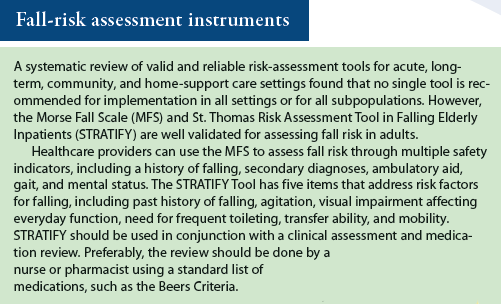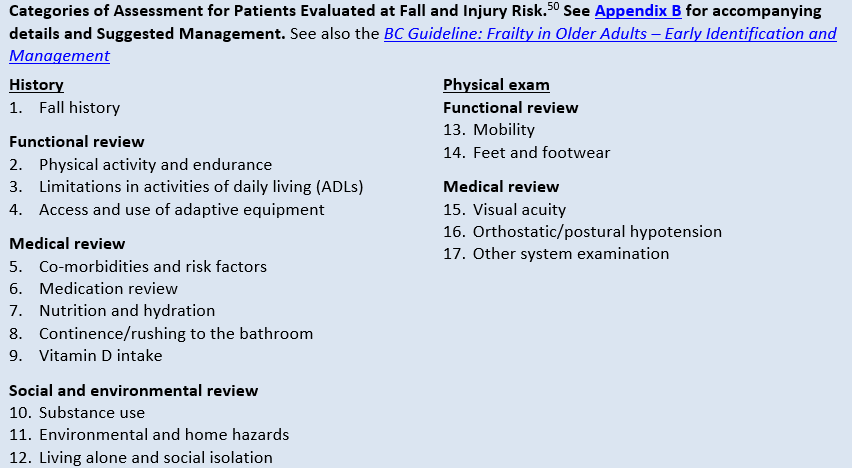Examine This Report on Dementia Fall Risk
Examine This Report on Dementia Fall Risk
Blog Article
Dementia Fall Risk Things To Know Before You Buy
Table of ContentsDementia Fall Risk - An OverviewThe 4-Minute Rule for Dementia Fall RiskThe Only Guide to Dementia Fall RiskFacts About Dementia Fall Risk RevealedThe Best Guide To Dementia Fall Risk
You could be worried due to the fact that you have actually had a fall before or due to the fact that you've observed you're starting to feel unsteady on your feet. You could have discovered adjustments to your wellness, or just really feel like you're slowing down a little. Whatever the reason, it isn't unusual to come to be mindful and lose confidence, and this can quit you doing the important things you utilized to do and make you really feel a lot more isolated.If you've had an autumn or you've begun to feel unsteady, tell your doctor even if you really feel great or else. Your physician can inspect your equilibrium and the means you walk to see if enhancements can be made. They might have the ability to refer you for a drops risk assessment or to the falls prevention solution.
This info can be gotten via interviews with the individual, their caregivers, and an evaluation of their clinical documents. Begin by asking the individual about their history of drops, including the regularity and circumstances of any kind of recent falls. Dementia Fall Risk. Inquire about any flexibility problems they might experience, such as unstable or trouble walking
Conduct a complete testimonial of the individual's drugs, paying certain interest to those understood to boost the threat of drops, such as sedatives or drugs that lower blood stress. Determine if they are taking several medications or if there have been current adjustments in their medicine routine. Review the person's home setting for possible threats that can boost the risk of falls, such as poor lighting, loosened carpets, or lack of grab bars in the restroom.
The Ultimate Guide To Dementia Fall Risk
Overview the individual via the autumn risk assessment type, discussing each question and tape-recording their feedbacks precisely. Make certain that the specific comprehends the objective of the evaluation and really feels comfy providing straightforward solutions. Calculate the complete danger rating based on the feedbacks given in the evaluation type. Determine the person's risk group (reduced, medium, or high) based upon the overall rating and the visibility of automatic high-risk condition factors.
On a regular basis check the person's progression and reassess their threat of falls as required. Give recurring education and support to advertise safety and security and minimize the risk of drops in their day-to-day living activities.
Several researches have actually shown that physical therapy can aid to decrease the danger of falling in grownups ages 65 and older. In a new study (that looked at falls threat in women ages 80 and older), researchers calculated the economic influence of selecting physical therapy to prevent drops, and they found that doing so conserves $2,144, including all the hidden prices of your time, discomfort, missed life occasions, and the dollars paid for services.
6 Easy Facts About Dementia Fall Risk Explained
Analyzing your equilibrium, strength, and walking capability. A home safety and security analysis. Based on the evaluation results, your physical therapist will create a strategy that is customized to your details demands.
Older adults that have problem strolling and chatting at the very same time are at a higher threat of dropping. Dementia Fall Risk. To aid raise your safety throughout everyday tasks, your physical specialist might make a training program that will certainly test you to keep standing and strolling while you do an additional job. Instances consist of strolling or standing while counting in reverse, having a discussion, or bring a bag of grocery stores
Your physical therapist also can identify which tasks you should avoid to site stay secure. Community-based drops avoidance programs aid individuals to: Decrease their concern of dropping. Set goals for increasing their physical activity. Make their homes much safer. Exercise more to raise their strength and equilibrium. These programs usually are led by volunteer trains.
How Dementia Fall Risk can Save You Time, Stress, and Money.

Measles, or rubeola, is a highly contagious, intense viral contagious disease triggered by the measles infection. Some people think of measles as simply a rash and fever that improves in a few days; however, measles can create major health problems, specifically in youngsters younger than 5-years-old. The best protection against measles is the he has a good point measles, mumps, and rubella (MMR) vaccine.
Autumns are a common cause of injury amongst older adults.
A Biased View of Dementia Fall Risk

She has a clinical history of seizure disorder and hypertension. She is receiving an IV infusion and taking Gabapentin and Lasix. She has no background of drops, her stride is steady, and she voids without any concerns. The previous registered nurse states that she asks for aid to the bathroom when she needs to go.
Instances of typical fall interventions/measures consist of: Making certain a person's essential things are within reach. Past comprehending how to make use of the Johns navigate to this website Hopkins Autumn Risk Analysis Tool, it's crucial that centers integrate its use right into an extra thorough autumn prevention strategy.
Report this page